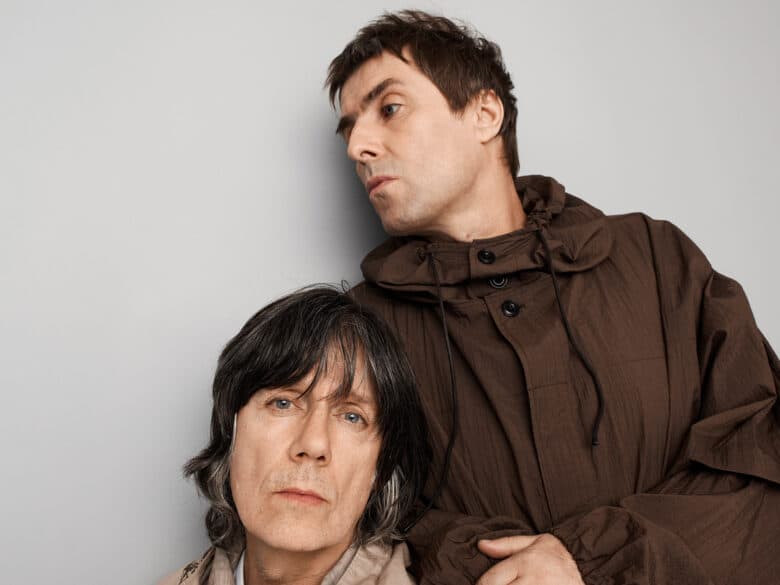Unpacking the controversy around those “OK boomer” memes
If you’ve been on the Internet in the past month, you’ll likely have come across two words: “OK boomer”. First taking off as a trend on TikTok, it gained traction as Gen Z-ers responded with “OK boomer” to a clip of a middle-aged man saying “the millennials and Generation Z have the Peter Pan syndrome, they never want to grow up”. Since then, it’s appeared in countless memes, inspired an alt rock “anthem” and been featured on Gen Z-made t-shirts, sweatshirts, phone cases and more. Like all viral trends it was destined to fizzle out after a few weeks until a NY Times article brought it to the attention of older generations — particularly outraged baby boomers — and it’s grown into a symbol of intergenerational war.
The top definition on Urban Dictionary (that 100% reliable source) is as follows: “When a baby boomer says some dumb shit and you can’t even begin to explain why he’s wrong because that would be deconstructing decades of misinformation and ignorance so you just brush it off and say okay.” From the Gen Z perspective, the phrase was a way to clap back at certain baby boomers’ favourite claims: that younger generations are entitled, with ideals that are incompatible with the “real world”. However, as has been pointed out many times, today’s youth face a housing crisis, growing wealth inequality, huge student debt and the growing spectre of climate catastrophe. Gen Z are right to be angry about all this, and a lot of these issues can be attributed to the skewed logics of late stage capitalism maintained by baby boomers in governments and at the helm of large corporations. “OK boomer” was just a way of voicing this anger and frustration without having to *get into it*.
Once the trend left TikTok and hit Twitter, millennials started jumping on the bandwagon too. Spending over a decade being maligned as privileged snowflakes, they weren’t going to miss a chance to take a dig at boomers. In the hands of millennials, the term took flight from tweets and tote bags into the debate chamber as 25-year-old Chlöe Swarbrick, a Green MP in New Zealand, uttered “okay boomer” in response to parliamentary heckler on 5 November. Unlike Gen Z, who are largely still in high school, apprenticeships or further education, millennials are in the “real world” of the capitalist rat race. In their mid 20s to late 30s, they’re a generation attempting to maintain a commitment to liberal values whilst being overburdened by a system that is rigged against them. Of course they’re frustrated with the baby boomers who think they spend all their time whining: in reality they’re working a full-time job, managing a side hustle or two and trying to make time for traditional “adult” life achievements because deep down they still crave social validation, even if they don’t like to admit it.
Likely due to a flurry of reportage that took off after the NY Times article, boomers have also got wind of the phrase and are pissed. It’s been described as a “slur” and Bhaskar Sunkara (the founding editor of Jacobin), writing in the Guardian, has argued that “OK boomer” demonstrates the ways that upper-middle class youth dominate online discussion; basically boiling it down to a case of rich kids jeering at older workers online. Sunkara’s argument highlights one of the most important, and misreported, aspects of the “OK boomer” phenomenon. No-one is taking aim at 55-75 year olds as a blanket group — these individuals are likely going to be endangered by the labour market’s increasing reliance on technology whilst having to contend with rising retirement ages and terrible state pensions. They also have their worries: they’re affected by job precarity, too, and will no doubt be drastically affected by cuts to the social service and health service as they grow older. It’s the ruling class of baby boomers, uber capitalists like Donald Trump and right-wing politicians like Boris Johnson, that we’re giving the middle finger to when we say “OK boomer”. We’re sure there’s plenty of boomers who’d love to say “OK boomer” when an upper middle class, cis-het white dude in their generation describes their success as “self made”.
The beauty of “OK boomer” and both the glee and outrage it has provoked, is that it reminds us that dissatisfaction with our current world is a cross-generational issue. For every Gen Z overwhelmed by the weight of social injustice, there’s a baby boomer who’s being told that their worth to the capitalist machine is coming to an end. Even if we use different terminology, we’re all negatively affected by corporate greed and neoliberal negligence. So, as much as we all hate talking to one another, we’re going to need to get all of the generations working together to find a solution to the dominance of the 1%. Baby boomers aren’t a monloith, there are so, so many who are trans, queer, POC, differently abled and negatively impacted by the class system. Younger generations need to do what they can to seek out and platform these voices: they’re the allies we need to deconstruct social injustice.

